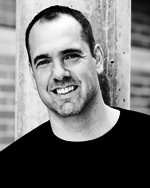 Charles Taylor Gould, a former co-worker of mine, is a juvenile probation officer in Multnomah County, Ore., who's been hearing stories for 15 years from teenage girls in the juvenile justice system who've been sexually exploited or victimized by sex trafficking.
Charles Taylor Gould, a former co-worker of mine, is a juvenile probation officer in Multnomah County, Ore., who's been hearing stories for 15 years from teenage girls in the juvenile justice system who've been sexually exploited or victimized by sex trafficking.
So what did he do? He did what anyone would do: he made a full-length documentary. And along the way, he interviewed people like U.S. Senator Ron Wyden and actress Daryl Hannah.
Your American Teen "follows three teens for approximately two years. All three girls suffered severe trauma as children and throughout their adolescence; all three had parents that were unable or unwilling to care for them." Gould and his fellow producers, Tyler Benjamin and Keith Murphy [the latter is also a juvenile probation officer and co-worker of Gould's], "interviewed survivors, detectives, organization executives, celebrities, lawyers, policy makers and many others in [a] quest to find out what is being done to prevent sexual exploitation of vulnerable girls" in the Northwest.

Charles Taylor Gould
Q: What inspired you to make this documentary?
Mainly, it was that you see kids in deep pain ... I've been doing my work 15 years now. I work with all populations at juvenile justice because I lead skill groups [educational, cognitive restructuring, etc.], which means I get kids from all units - a girl who was trafficked and in our system because of that, a gang member, sex offender -- any of them. I hear their stories and they're almost unbelievable.
As a juvenile court counselor, your voice can be loud -- but only so loud, and the only other way I knew how to yell to Joe Public to hear these stories was to do the other thing I love, and that's making films. It's the best way to get people to hear these stories.
Q: Does this affect boys as well as girls?
It's predominantly girls, yes. Make no mistake, there are boys out there who are sexually victimized. The thing that kills me about it is some of these kids are 4 and 5 years old when they get raped, beautiful kids, and they live in silence with this unbelievable pain. It happens to boys and girls, but mostly girls.
Q: Does your film address the issue of criminalizing prostitution when teens are victims of sex trafficking?
Yes. And about how drugs play a role in this. An amazing amount of young women and girls end up addicted to drugs and are exploited sexually because of that addiction. It happens all too often. In fact, you see a young woman talk about that in the film trailer.
These girls are treated like criminals. They're brought into detention facilities, they're sometimes tried, they can have felonies that go with the prostitution charge.
There are more than 100 girls in Portland at any given time that are victims of sex trafficking by a pimp. And we have three beds [in the service system] dedicated to help these girls. That sounds horrible, but it's three more than we did have. So the movement is going in the right direction. People are starting to understand that these girls are victims and not criminals.
It's amazing to me that we have 100 girls in absolute crisis right now. Many need up to 9 months of treatment [which can be a combination of drug and mental health treatment, cognitive restructuring, and trauma-focused care] -- you do that math, that's a lot of money and beds. I don't know what the answer is. We've asked a lot of peole, and no one has one. The money's not there, but the problem continues.
Q: Based on the trailer, it looks like you're dealing with more than just sex trafficking. Can you say more about that?
I can't stand the term "sex trafficking." It doesn't describe what's really happening. That really comes from moving bodies from one place to another. This happens -- because Portland is on the I-5 [highway] corridor, the city is a great hub for sex trafficking. Pimps will trade girls from Seattle to Portland, Vegas, then back up to Tacoma [Washington] -- we're talking about selling children for sex. That's one end of the spectrum.
But there's more going on than that. Other facets of the documentary are about girls dealing with sexual exploitation every day, as young girls and teenagers. The sexual exploitation issue is that we as a society seem to be upping the ante as far as what is acceptable in how we sell things and what we perceive to be sexy. There's all these different things happening at once. The way they're connected -- from actual pimping to pressure to dress a certain way -- these girls are being exploited around their sexuality. It's all connected.
Q: How can the film help?
By getting the message out there, it can help young girls know they're not alone. One thing the three girls we followed in the film all have in common: they all suffered severe trauma and were left to deal with it by themselves, because their parents were unable to help because of their own depression, or locked in drugs, or didn't care about their kids the way they should have.
The girls are still fighting their battles. Two are doing quite well, and one is still struggling. The reason they were so willing to do these interviews was that they wanted to help younger girls deal with similar situations. So I think the film can help younger girls know that there is a light at the end of the tunnel and there are people to help.
Equally as important, the general public needs know that the issue exists, that the service systems are aware of it, and are fighting to do something about it, that there are people out there who are at least trying to help. The more people who are aware, who stand up, who don't buy into the garbage media tells us about sexuality and girls, the better off we'll be. This is a call-to-action film.
Q: What can people do?
First, I'd say, face your own issues. We're all guilty at some level - we have a huge issue with pornography in this country, but beyond that, we often buy into the idea that younger is sexier, or women believing that they have to look young and be ditzy to get love. The experts we interviewed in the film all say, "Dive in, face your own issues, but be honest."
Second, find out who's working on this issue locally. Join an activist group, like the Soroptimists.
Third, let your local government officials know this issue's important to you. Find champions and support them.
Fourth, work to educate kids in schools about this. We need to forget this idea that kids in middle school can't handle this subject, because if we're not teaching them ways to deal with their own sexuality, and how to draw lines in terms of sexual exploitation, they're going to learn it from their peers.
Q: What's next for the film?
It still needs to be edited, but its world premier will be in January 2012, at the next conference held by the Northwest Coalition Against Trafficking. Beyond that, we're working on our distribution plan. We'd like to cut a version for use in schools, and another for adults.
The above story is reprinted with permission from Reclaiming Futures, a national initiative working to improve alcohol and drug treatment outcomes for youth in the juvenile justice system.
I just want to say THANK YOU! a message that needs to be heard so that more people can be aware and help make a change for our young teens girls and boys that find themselves in trouble. It is so true how they are treated as criminals when they should be given help to make the change out of a struggled life into one of hope.
Thanks for this documentary!